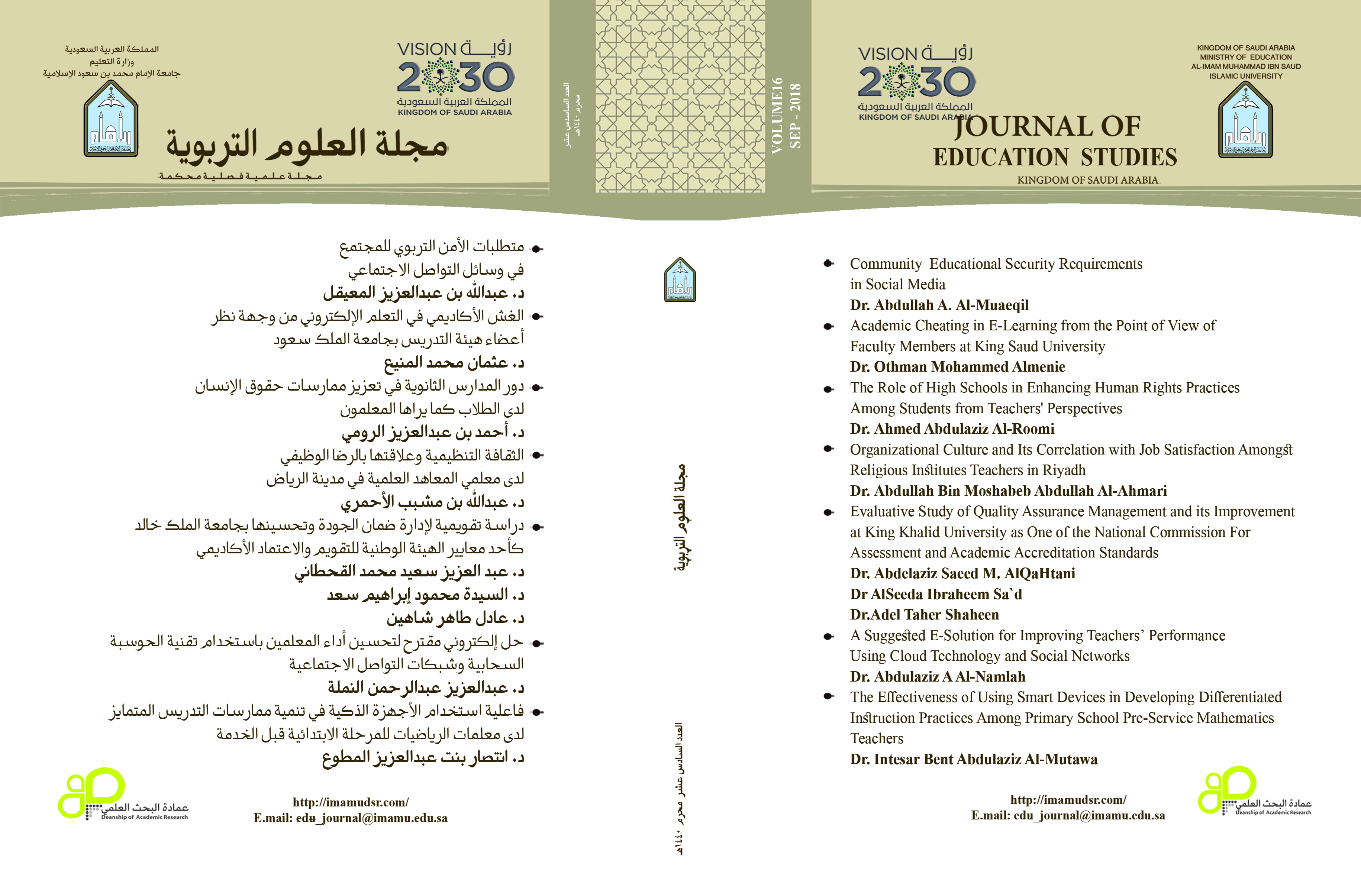Academic Cheating in E-Learning from the Point of View of Faculty Members at King Saud University
Keywords:
Academic malpractice, E-learningAbstract
This study aims to detect academic cheating in e-learning and the appropriate methods to counter it, following the descriptive approach. The researcher has used a questionnaire to collect data from (109) selected participants making the sample from faculty members teaching online courses.
The study reveals that students’ academic cheating in e-learning is practised on a large scale, and that the majority of the cases quote assignments and study requirements from the internet, without specifying the source. This is followed by copying phrases from the internet and putting them side by side without any addition from them. On the other hand, the study shows that the most appropriate approaches to prevent academic cheating are: using regulatory methods, followed by using educational methods, technical methods, and finally pedagogical methods. The study has also revealed that there are no statistically significant differences in the averages of the views of participants in the study, while the differences in countering cheating are attributable to the differences in academic ranks; whereas there are significant differences between the average views of faculty members in colleges of humanities and Health. Colleges of humanities score higher with regard to cases of academic cheating, and they score better with regard to countering cheating by using pedagogical methods. There are also significant differences in the average views of male and female faculty members about pedagogical and technical methods of countering academic cheating in favor of female faculty.




